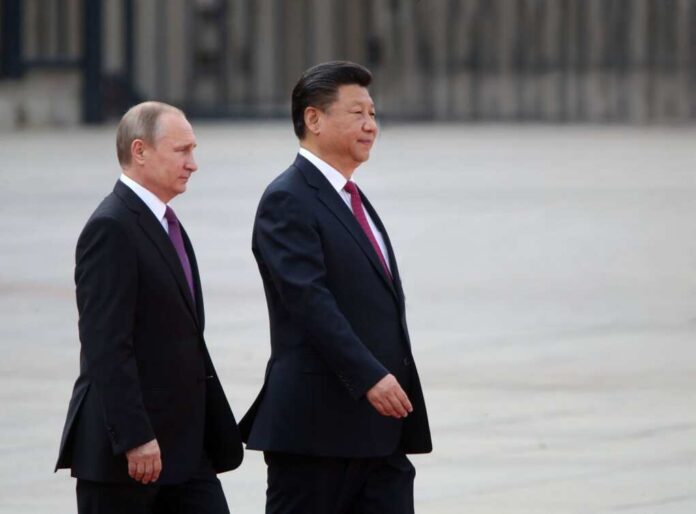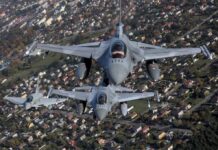
In a strategic display of their strengthening alliance, Russian President Vladimir Putin visited China’s President Xi Jinping in Beijing, emphasizing their “no-limits” partnership amid the escalating Ukraine conflict and the recently erupted war in Israel.
This marks only Putin’s second known international voyage since the Hague-based International Criminal Court (ICC) issued an arrest warrant against him in March. Notably, neither China nor Kyrgyzstan, another country Putin visited this year, are ICC members, meaning each provides him with safe diplomatic passage.
Putin visits ‘dear friend’ Xi in show of no-limits partnership https://t.co/ltEIVXJXYh pic.twitter.com/9XVUVXgK92
— New York Post (@nypost) October 17, 2023
The importance of the trip to Beijing cannot be understated. As the Ukrainian war intensifies, Russia and China continue to bolster their united front against democratic nations, most notably the United States. In these times, the two global powerhouses seek to consolidate their positions on the international stage.
During his stay, Putin is slated to partake in the Belt and Road Forum’s official opening reception in Beijing, a pivotal initiative championed by Xi aimed at expanding China’s global influence. The Russian leader will also engage in talks with leaders from Vietnam, Thailand, Mongolia, and Laos.
While the strengthening of the Russo-Chinese alliance concerns many international observers, Putin is also dipping his toes into the tumultuous waters of the Middle East. With the escalating conflict in Israel due to Hamas’ surprise attacks on Israeli civilians, Putin has offered to help avert a humanitarian catastrophe in Gaza.
During a phone call with Israeli Prime Minister Benjamin Netanyahu, Putin articulated Russia’s aspiration to end the Palestinian-Israeli confrontation through peaceful, diplomatic measures. The Kremlin stated that both leaders concurred on the necessity of an immediate ceasefire, reflecting the apprehension about the potential escalation of this conflict into a broader regional war.
Russia is trying to cast itself as a peacemaker and a voice of restraint in the Middle East, seizing the opportunity to showcase its strong ties with key regional players. Putin’s interactions with leaders from Iran, Egypt, Syria, and the Palestinian Authority emphasize his country’s active role and influence in the area. Interestingly, during a conversation with Iranian President Ebrahim Raisi, the emphasis on supporting the Palestinians was highlighted. However, Raisi hinted that “resistance” groups operate independently.
This series of events demonstrates the changing dynamics of international politics. Putin’s visit to Beijing, while ostensibly a show of support for China’s Belt and Road Initiative and an exhibition of the two countries’ close ties, also highlights Russia’s intent to engage actively in Middle East affairs.
With the global spotlight shifting between the conflict in Ukraine and the Middle East crisis, how these superpowers navigate their relationships and diplomatic endeavors will undoubtedly shape the world’s political landscape in the coming months.














